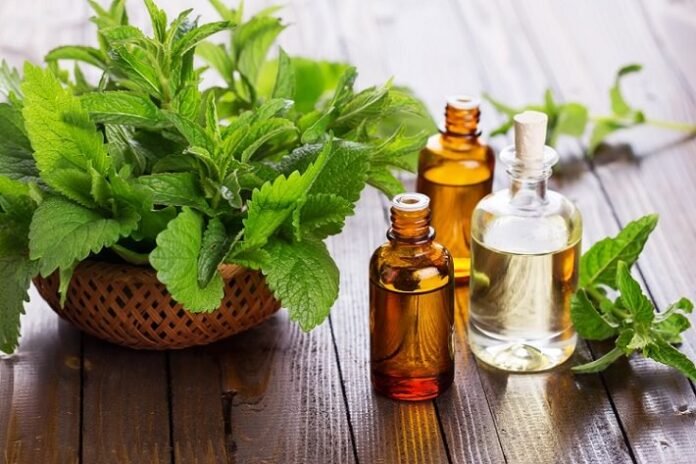Natural oils obtained from living organisms including plants and some animals are safe and efficient in enhancing skin appearance unlike products made from conventionally produced ingredients. Natural oils come with many benefits to the skin including fighting irritation, acne, and other conditions that rob the beauty from your face. Plus they are good moisturizers and can help prevent skin irritation.
Nearly all ingredients in these natural oils have undergone laboratory tests and proven effective in enhancing the beauty of the skin in regular users, without posing risks of side effects or complications. However, contact a specialist if you are planning to switch your beauty products, especially if you have a sensitive skin type.
Argan oil – fine lines

Argan oil is extracted from the nuts of a unique little tree solely found Morocco. The Argan tree only flourishes in areas where other vegetation dies away. It has been found to be effective in treating acne, improving hair growth and may even help in weight loss. It has been shown that Argan oil can dramatically moisturize your skin, which is crucial in any anti-aging treatment for eliminating wrinkles and fine lines. For several years, argan oil has been used by Moroccan natives, and they still use it up to now to moisturize and replenish cracked, dry skin. Its effects are seen if you experience skin damages due to the sun or dry heat exposure.
Avocado oil – dry skin

Avocado oil is a major ingredient in most cosmetic products available in the market. It popularity hails back centuries ago in its use for hair and skin treatments. Unlike olive oil that requires warming before applying, avocado oil is stable and can be ideal if you have a dry skin type. Also, its smell is mild. Renee Rouleau, a celebrity esthetician, recommends avocado oil for people with dry skin but cautions those with oily skin types. Avocado oil is rich in vitamin E, an antioxidant, and also better hydrates deeper layers of the skin than coconut oil. It is also rich in fatty acids, phytosterols, and sterolin. Studies indicate that phytosterols help in repairing and strengthening skin when applied topically.
Tea tree oil – acne
Tea tree oil is a common ingredient in many commercial products, including gels, creams, shampoos, mouthwashes, and lotions. It is rich in a compound called terpine-4-ol that accounts for its antimicrobial ability. Due to its capacity to kill bacteria, tea tree oil is applied topically to reduce the appearance of acne lesions. In a study conducted by researchers from the Department of Dermatology at the Royal Prince Alfred Hospital in Australia, it was found that tea tree oil reduces both inflamed and non-inflamed acne lesions in less than three months.
Tea tree oil has fewer side effects and may take longer before you start noticing its benefits on your skin. Possible side effects of undiluted tea tree oil for treating acne include skin irritation, redness itching, dryness or blistering when applied topically.
Coconut oil – eczema
Coconut oil contains several healthy and natural properties useful for eczema treatment. It is rich in antioxidants and comes with anti-microbial and anti-bacterial properties, essential for the soothing itchy skin while reducing inflammation at the same time. Coconut oil is also loaded with healthy vitamins and nutrients, including Caprylic acid, Lauric acid, and vitamins E and K for nourishing the skin and reducing itching and flaking.
Lauric acid, which is a rare type of fat, is converted into a highly toxic compound that fights bacteria, fungus, viruses and other micro-organisms. It penetrates into deep layers of your skin to moisturize and fight free radicals that lead to cell damages. As a natural oil, coconut oil fights eczema by nourishing and moisturizing your skin without harsh ingredients that can worsen eczema symptoms.
Safflower oil – skin irritation
Safflower oil is mostly used for cooking or as a natural laxative. This vegetable oil can help fight irritation, by increasing your skin’s ability to retain moisture and water. It is a natural anti-inflammatory agent that boosts cell membrane integrity and offer protection against toxic compounds and bacteria in the environment, which trigger skin irritation. Safflower oil helps in the elimination of oils and dirt from deep layers of the skin, which can lead to itchiness. Although safflower oil soothes the skin, you should carry out a patch test, especially if you have sensitive skin.
Conclusion
There is natural oil for treating every type of skin condition without making you prone to adverse side effects or reactions. Although these natural oils have been shown to be effective in addressing their respective skin conditions, some skin issues are better handled with the help of a qualified specialist. They shouldn’t be used to replace prescribed medication and should be used carefully, particularly if you have a very sensitive skin. They are common ingredients in most cosmetic brands available in the market, and always check their labels if you are allergic to some.
















